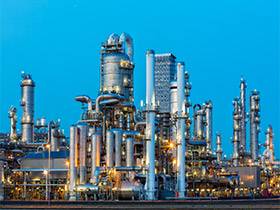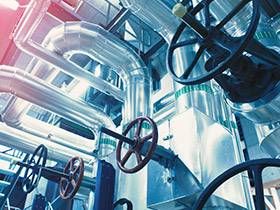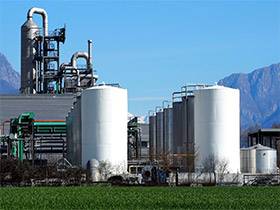Zeolite is composed of hydrated aluminosilicate minerals from aluminum, oxygen, silicons and alkaline-Earth metals. This product is considered as one of the most important catalysts in the petrochemical industry. In the oil refinery industry, it serves to convert hydrocarbon molecules into petroleum byproducts.
It is challenging to dig gasoline, diesel, kerosene, waxes and all kinds of other byproducts of petroleum without using a non-abrasive mineral. This shows that corrosion problems happen in the petroleum industry. But with its catalytic breaker abilities, it can break large hydrocarbon molecules into petroleum byproducts without being affected by the high temperature. It can also reduce heavy metals and toxic ammonia in aquatic reserves with its cation-exchange capacity mechanism.
Having around 30 years of experience with the help of leading local refinery and petrochemical solutions, we were able to upgrade zeolites’ composition and improve its efficiency in terms of purification, corrosion, and catalytic properties. Courtesy of Chempack’s unique, cost-effective and high-performance capabilities, we provide advanced and excellent products in our in-house factories such as honeycomb discs, metal impregnated hollow rings, cylindrical extrudate, inert balls, and more. Our green energy-processing solution is also utilized to improve environmental impact. Our products have achieved industrial standards and ISO9001 certification. This aims to strictly enhance the protection of human health and the environment while maintaining Chempack’s competitiveness in the chemical industries.
With thorough researching, comparative testing and detailed production, Chempack directs its focus to various oil refineries, petrochemical, and natural gas industries, and aims to provide the best products possible.
Our top-notch raw materials and molecular sieve technologies allow us to increase optimization in terms of heat conductivity. Zeolites are now able to withstand heat in a higher degree than others. It will also reduce the adsorption molecules, increasing ion-exchange capacity to quicken the purifying mechanism.
With extended purifying factors, our Zeolite is able to trap calcium and magnesium ions from water in a process called ion-exchange water softeners. This mechanism leaves a large specific surface area for strong adsorption of harmful nutrients. Furthermore, it has strong static electricity components which leave the water softer. Plus, ammonia toxicity will decline faster with Chempack’s zeolite due to more loosely bound cations.
Zeolites are known to be very stable solids. Meaning, it can tolerate environmental conditions that are considered challenging for other minerals. Due to zeolite’s high melting point (over 1000°C), it does not burn, unlike other minerals. On top of that, it can resist high pressures, does not dissolve in water or other inorganic solvents, and does not oxidize in the air. This enables it to perform for a long period of time.
Chempack’s zeolite is made from granular clinoptilolite zeolite. It is unreactive, natural, non-metallic mineral capable of cation exchange. The unique structure of clinoptilolite zeolite removes harmful components. Along with that, it also adjusts the pH levels and removes ammonia without harming the environment. Plus, it is reusable. Furthermore, certain zeolites of natural origin are used to treat low and average water wastes to lessen pollution.

Zeolite can act as a catalyst to increase the efficiency of oil refining.

Work as the petrochemical catalyst, zeolite enhances their output.

Catalyze process and adsorb contaminants for natural gas reservoirs.

Zeolite can be both catalyst and adsorbent differing in chemical needs.